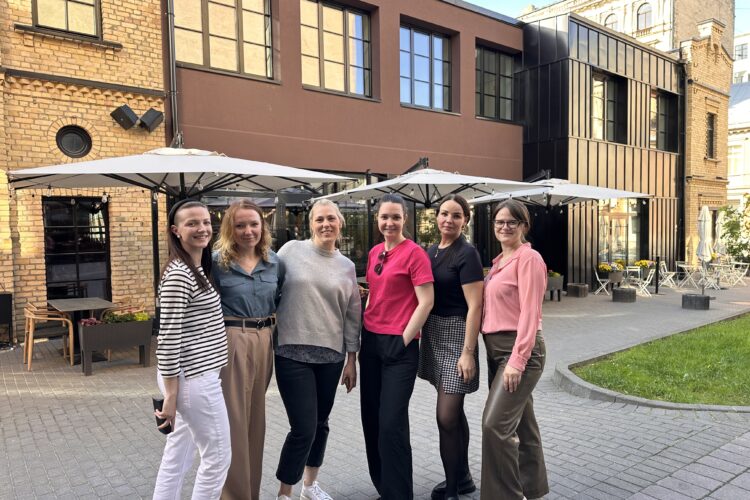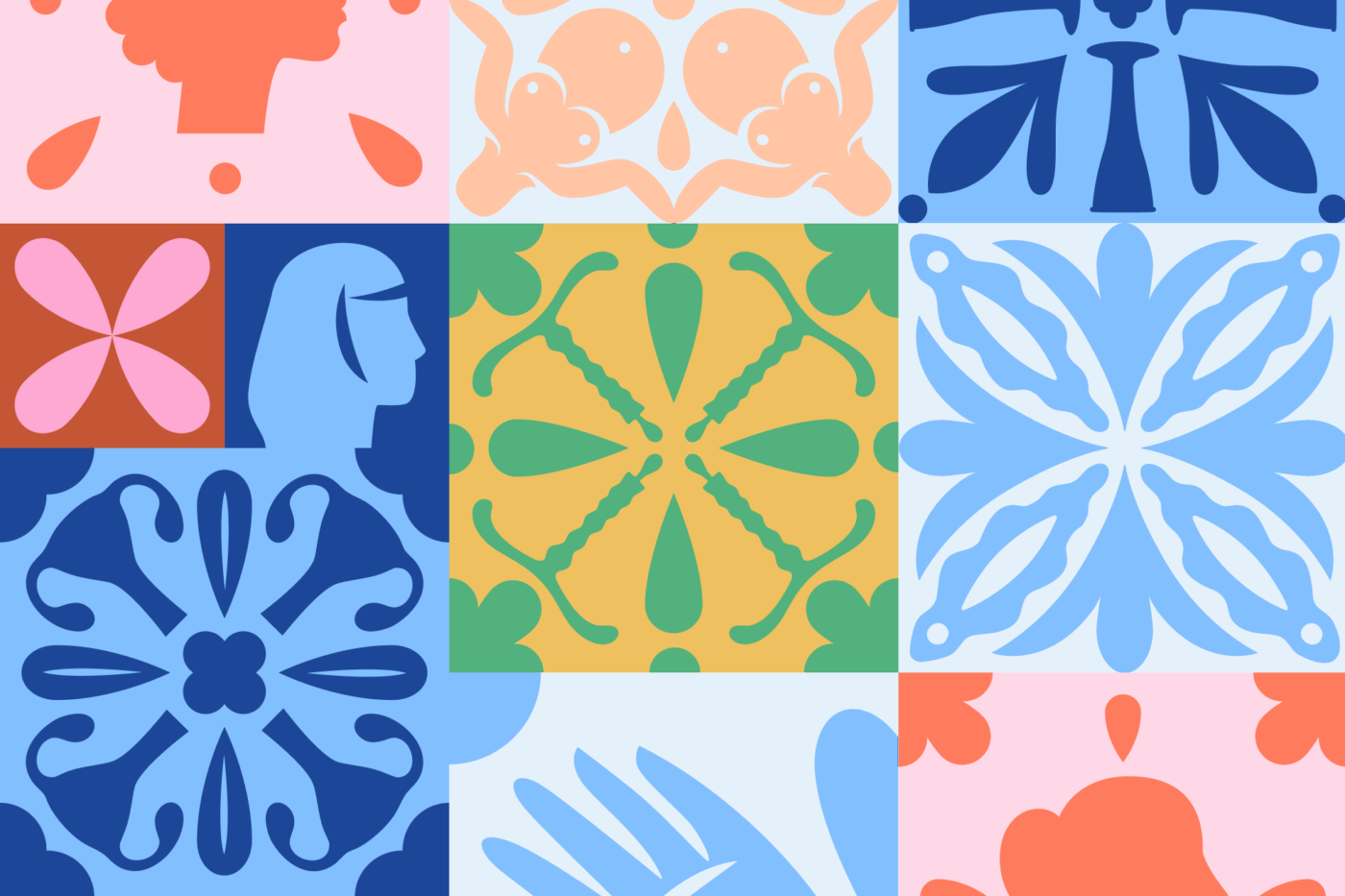A Safe Space for Young People: Latvian Midwives Leading the Way

Most people think of midwives as the professionals who step in when a baby is on the way — guiding women through pregnancy, birth, and the early postpartum days.
But their work goes far beyond that moment. Midwives are essential providers of sexual and reproductive health care, offering counselling, education, contraception, abortion care, antenatal support, health promotion, and ongoing care for women and newborns.
For young people, in particular, midwives can be a trusted source of knowledge — creating safe spaces to ask questions, challenge myths, and get evidence-based information to better understand their bodies and make informed choices about their futures.
This is exactly what motivated a group of midwives – Santa Linda Liepiņa, Karīna Mailīte-Barkāne, and Zane Zaķe, Elīna Kronberga and Kintija Vīksne – in Riga, Latvia, to launch a project offering support and consultations to young people across the city. During the first year, the project has been mobile, with midwives visiting youth centres across the city to provide consultations and group sessions. In the future, they hope to open a dedicated clinic where young people can access care and support in one central, trusted location.
We spoke with three of the midwives at the centre of this project — Santa Linda, Karīna, and Zane — about the project’s first year and how this inspiring initiative is already making a difference for many Latvian youths.
How was the project born?
Karīna: The idea came from our Latvian Midwives Association, and especially from its president Linda Veidemane, who always encouraged us to believe that we could do more with our profession and that we are competent.
When we started looking at the situation in our city, we realised that we assume young people have both parents, that they will receive basic knowledge and advice. But there are many who live outside of family care, and those young people need support and care as well.
Santa Linda: So, together with the Latvian Midwives Association and in collaboration with the Riga City Council, we launched the project “Midwives Supporting Youth”.
We provide consultations as well as emotional, informational, and educational support to young people. We work closely with the Riga Children’s, Youth and Family Social Support Centre. Many of the young people we support have moderate to complex health needs and live in out-of-home care. The young people we see are up to 25 years old, but we also support their guardians, foster parents, and caretakers to help ensure a smooth transition to independent living outside of the system. In addition, we work with women with young children and pregnant women who are in vulnerable situations.
Why is it important to have this initiative in Riga?
Santa Linda: This is the first time such a project has been implemented in Latvia, and it’s a new challenge for us. As midwives, it’s often difficult to prove the full scope of what we do, and our profession remains undervalued in many ways. People tend to think we only work in maternity wards, because they have this image that comes from our history, but we want to show a different picture.
Zane: We also wanted to inspire other midwives — both in our city and across the region — not to limit their work to one area. As midwives, we have the knowledge and expertise to provide support at various stages of life. It is particularly important to educate young people who have been out of family care on issues related to reproductive health, personal hygiene, sexually transmitted infections (STIs), menstrual health, and other topics relevant to their well-being.
How does the clinic work?
Karīna: There are five midwives providing consultations, and we work closely with social workers. They help us with individual cases and support us in communicating with the young people. We’re also learning together how to provide care that feels personal and builds trust. Since we usually work with families in hospitals, this is a new experience for us as well.
Santa Linda: In fact, many of the young people we meet struggle with anxiety or have experienced abuse or sexual violence. Sometimes we also collaborate with legal advisors to ensure a comprehensive approach to care.
We offer group sessions and individual consultations for young people on topics such as hygiene, menstruation, safe sex, contraception, STIs, and pregnancy. In private consultations, they can discuss personal health concerns, receive counselling, and, if needed, referrals to specialists. Since the project doesn’t yet have a dedicated midwives’ clinic with testing equipment, we guide them through next steps — for example, STI testing, which is free in Latvia for those under 25.
A physical youth clinic would make this process simpler and safer, allowing midwives to provide testing, treatment, and continuous care in one trusted place. For many, especially younger adolescents, it’s also easier to talk with midwives about bodily changes than with their caregivers.
What is the impact of this project?
Zane: When we have group discussions, they usually last around two hours. We use flash cards, interactive sessions on Kahoot, and we analyse different scenarios. This keeps them engaged — the material is interesting, and they can have dynamic conversations about difficult topics. During these sessions, many gain the courage to ask questions they wouldn’t feel comfortable asking their social workers or teachers.
Santa Linda: In Latvia, there’s no dedicated health education subject in schools, so many young people have little knowledge of sexual and reproductive health. Their access to reliable information is very limited — most of what they learn comes from TikTok, which is often inaccurate.
We think the project works because they don’t see us as lecturers or doctors giving instructions. They feel safe, knowing we won’t judge them.
We also try to change how they view health care professionals. Many young people don’t trust doctors, dentists, or other providers and therefore avoid check-ups. We show them that it’s important to care for themselves — and that they can trust us.
A success story:
Zane: Last year, a 16-year-old girl was referred to us by social workers. She was pregnant but wanted an abortion. Because she was young and didn’t know how to track her menstrual cycles accurately, she came to the clinic too late — beyond the legal timeframe for abortion in Latvia.
She was very scared of being judged, but she wanted to understand what would happen during her pregnancy and after the birth.
Since it was a sensitive situation, I consulted my colleagues and set up supervision for the case so that we could provide the best care possible.
Throughout our sessions, we gave her all the information she needed and created a space where she could ask any questions freely. After the baby was born, she told us that, thanks to the support and information she received from us and the social worker, she now felt ready to take care of her baby on her own.
What challenges have you encountered in this first year?
Zane: The main challenge I would say is the public perception of what a midwife does — and what we can do for young people. That’s why advocacy is such a big part of our work. For example, every two months we hold presentations for social workers and youth center staff to explain the scope of midwifery practice, so they can also share that knowledge with youths and families during their sessions. We also hold sessions online to improve their knowledge about reproductive health.
Another major challenge is financial support. For now, the project will run until December 2025, but we don’t yet have the resources to expand or establish a permanent, midwife-led physical clinic. That is why we are looking for partners and organizations that might help us in the future.
How do you see the future of this project?
Santa Linda: The initiative will continue until the end of this year, but we hope that further collaboration and partnerships will allow us not only to continue but to open the very first midwife-led clinic in Riga.
Our ambition is to have a physical clinic run by midwives, working alongside other health and social care professionals — such as gynaecologists, psychologists, social workers, and paediatricians. This would make it easier for young people, families, and women to access trusted, personalised care all in one place. In vulnerable situations, families wouldn’t need to go separately to children’s hospitals, midwives, social services, and psychologists — they could simply come to one clinic and receive all the care they need. We also want to expand the services we offer, so that everyone who needs it will be able to come to us.
Midwifery consultations in a youth clinic would help ease the heavy workload of gynecologists in Latvia, where waiting times for state-funded appointments can stretch for months. Within their scope of practice, midwives could manage many cases independently, allowing doctors to focus on patients who truly need specialist care. Over the past year, through our consultations and discussions, we’ve seen that most young women’s questions — about menstrual pain, sanitary products, cycle norms, and contraception — can be fully addressed by a midwife.
An example of collaboration is that we recently had an incredible experience thanks to Karin Emtell Iwarsson, who gave us the opportunity to visit two youth health clinics in Stockhol, the Solna Ungdomsmottagning and the Odenplans Ungdomsmottagning. The visit gave us motivation, inspiration, and valuable insights from our Swedish colleagues. We came back full of ideas and energy to do even more for young people in Latvia.
We hope to build more partnerships like these — collaborations that connect midwives across the world and inspire others.
We truly are a dream team, and we encourage other midwives to start with small steps. With the knowledge they already have, they can achieve so much!
The world needs One Million More Midwives
Sign the petition and help us collect one million signatures to demand one million more midwives — and the investments needed to make it happen.
